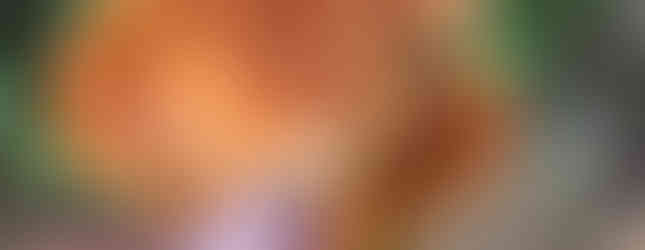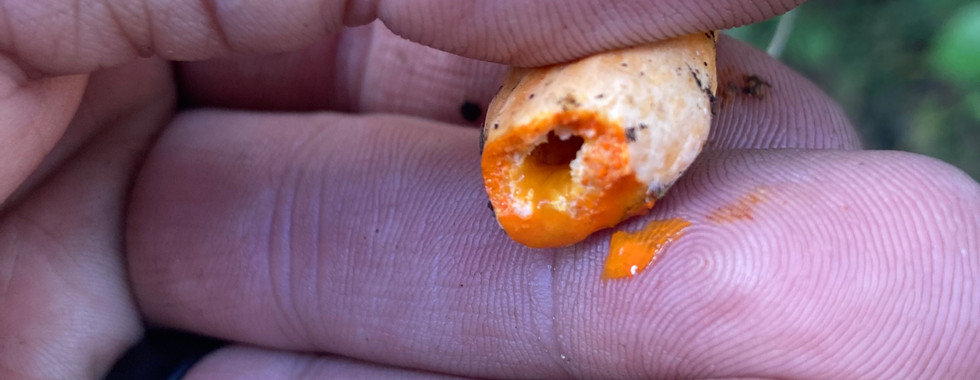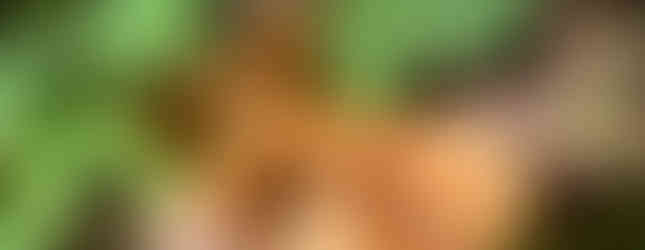This post is a follow up to the previous one on Russulas. Reason for that is that both russulas and lactarius are in the family of fungi called Russulaceae. Russulas and lactarius are both very similar to one another in many respects. Like russulas, lactarius mushrooms are very common. They can be large and sometimes showy mushrooms though are typically not as colorful as russulas. The biggest difference between russulas and lactarius is the root of their nickname "milkcaps". When cut, lactarius fungi will emit a latex fluid that resembles milk.
Lactarius mushrooms often have concentric rings the cap working their way from the stem to the margin of the cap. As mentioned before, lactarius typically are a shade of white, pale yellow, tan or beige. There are a few that are more brightly colored with shades of orange or deep blue, but most lactarius fungi are more of an earthtone. Like russulas, the gills of lactarius fungi are very symmetrical and tightly packed. Again, like their cousins the russulas, lactarius mushrooms have white to cream to pale yellowish or pale orange spore prints.
In terms of which lactarius to know, there's really only a couple as far as I am concerned. Most lactarius, like russulas, are not considered good edibles. They often have a strongly peppery and bitter taste. The one exception to this is the Indigo Milk Cap, lactarius indigo, which is reportedly both a beautiful blue color and has a fairly tasty flavor. I have never found the indigo milk cap, unfortunately, so cannot report directly my experience with it. Another excellent edible lactarius is the Candy Cap, lactarius fragilis. This mushroom has a potent maple syrup aroma and is frequently used as a flavoring agent in cakes, ice creams, and other desserts. I've never found them, as they do not grow in Minnesota, but a friend shared a pile of dried ones with me. They're great!
As far as the rest of the milk caps, I have never eaten any of them, but they are fun to admire.










